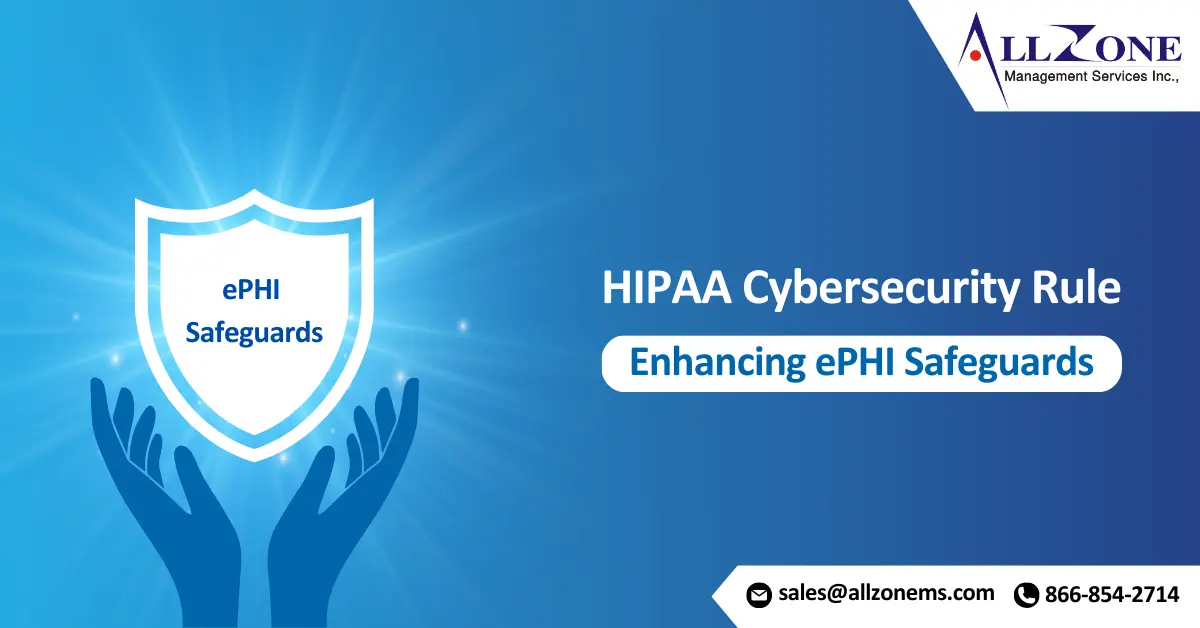The Department of Health and Human Services (HHS) has introduced proposed regulations aimed at strengthening cybersecurity in the healthcare sector. Issued by the Office for Civil Rights (OCR), the proposed rule seeks to amend HIPAA to enhance the safeguarding of individuals’ protected health information (PHI) in compliance with HIPAA cybersecurity regulations.
| Content Highlights: |
|
The new provisions would mandate most healthcare providers, health plans, clearinghouses, and their business associates to adopt comprehensive measures to protect electronic PHI (ePHI).
Key Proposed Changes
1. Unified Implementation Standards
-
- Eliminate the distinction between “required” and “addressable” implementation specifications, making all specifications mandatory with limited exceptions.
2. Written Documentation Requirements
-
- Mandate written documentation of all Security Rule policies, procedures, plans, and analyses, ensuring regular review, testing, and updates.
3. Technology Updates and Terminology
-
- Update definitions and revise implementation specifications to align with modern technology and terminology.
4. Compliance Timeframes
-
- Introduce specific compliance deadlines for existing requirements.
5. Technology Asset Inventory and Network Mapping
-
- Require an updated technology asset inventory and network map to track ePHI movement, reviewed at least annually or after significant changes.
6. Enhanced Risk Analysis
-
- Include explicit requirements for written risk assessments that evaluate:
- Technology asset inventory and network maps.
- Anticipated threats to ePHI.
- Vulnerabilities and their potential exploitation.
- Risk levels for identified threats and vulnerabilities.
7. Access Notification
-
- Require notification within 24 hours of changes to or termination of workforce access to ePHI.
8. Incident Response and Contingency Planning
-
- Establish detailed procedures for restoring data within 72 hours and prioritizing critical system restoration.
- Require written incident response plans and regular testing.
9. Annual Compliance Audits
-
- Mandate annual compliance audits to ensure adherence to Security Rule requirements.
10. Business Associate Verifications
- Require business associates to verify technical safeguards annually and certify findings.
11. Technical Controls
- Deploy anti-malware protections, remove extraneous software, and disable unnecessary network ports based on risk analysis.
12. Mandatory Multi-Factor Authentication
- Require multi-factor authentication with limited exceptions.
13. Regular Vulnerability Scanning and Penetration Testing
- Conduct vulnerability scans at least every six months and penetration tests annually.
14. Backup and Recovery Protections
- Require separate technical controls for the backup and recovery of ePHI.
15. Contingency Plan Activation Notifications
- Mandate business associates to notify covered entities of contingency plan activations within 24 hours.
Addressing Escalating Cybersecurity Threats
Deputy Secretary Andrea Palm emphasized the critical need for these changes, pointing to the surge in cyberattacks targeting healthcare systems. “These attacks endanger patients by exposing vulnerabilities, degrading trust, disrupting care, and delaying medical procedures,” Palm stated. The new rules aim to bolster resilience and preparedness across the healthcare system.
Data Breach Trends
OCR data highlights the urgency of action:
- Large breach reports increased by 102% between 2018 and 2023.
- Affected individuals grew by 1,002%, with over 167 million impacted in 2023 alone.
- Hacking and ransomware incidents have risen by 89% and 102%, respectively, since 2019.
Interim Compliance
While the proposed changes are under review, HHS reminds healthcare entities that the current HIPAA Security Rule remains in effect, and compliance is critical to safeguarding patient data.
Why HIPAA Cybersecurity Compliance is Crucial for Medical Billing Companies
The updated importance of HIPAA cybersecurity regulations in healthcare practices cannot be overstated, especially for medical billing companies. With healthcare data breaches becoming increasingly common, ensuring compliance with HIPAA (Health Insurance Portability and Accountability Act) is vital to protect patient privacy and sensitive information.
Medical billing companies handle vast amounts of personal health data and financial details, making them prime targets for cyber threats. By adhering to HIPAA cybersecurity regulations, healthcare providers and billing services can safeguard their systems against unauthorized access, data theft, and malicious attacks.
This not only protects patient trust but also mitigates the risk of severe financial penalties for non-compliance. Regular updates to HIPAA cybersecurity regulations also ensure that healthcare practices remain aligned with evolving security standards, reducing the risk of data breaches. Medical billing companies must prioritize robust cybersecurity measures to avoid costly breaches and ensure a safe, compliant environment for handling patient data.

